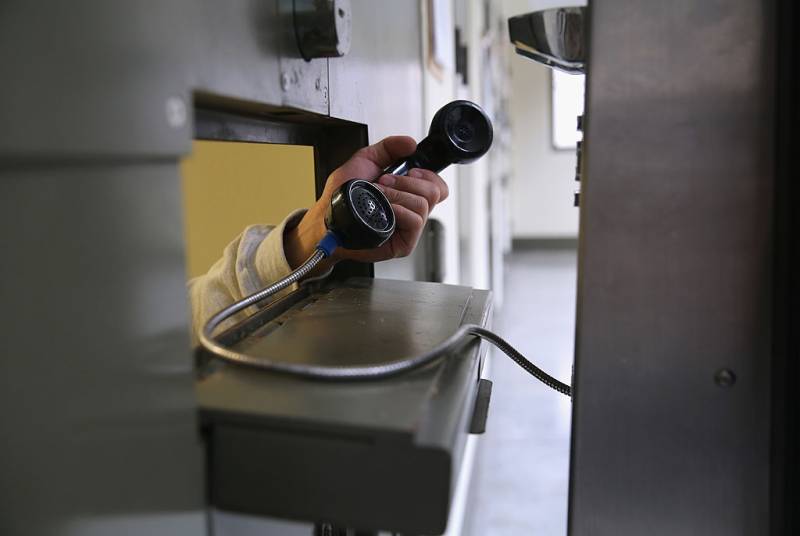A GEO spokesperson declined an interview with KQED, but strongly rejected allegations of retaliation. He said the company is meeting all federal detention standards while committing to ensuring a humane and safe environment at their facilities.
The spokesperson has repeatedly denied that a labor strike is taking place at Mesa Verde and Golden State Annex, as the work program is deemed voluntary and established under federal detention guidelines.
“We firmly deny any allegations of retaliation, direct or indirect, against persons housed at the centers for any reason whatsoever,” he said in a statement. “Under no circumstances are any detainees forced to participate in the Voluntary Work Program.”
The Office of the Immigration Detention Ombudsman, to whom detainees submitted a complaint, confirmed that a staff member is regularly visiting Mesa Verde and Golden State Annex, but declined to comment on any investigation.
In September, more than a dozen members of Congress from California requested top federal immigration officials investigate reports of “disturbing conditions and abusive and retaliatory behavior towards detainees.”
South Bay Rep. Zoe Lofgren, chair of the House Immigration and Citizenship Subcommittee, told KQED that if the complaints of retaliation are found valid, Immigration and Customs Enforcement should terminate its contracts with GEO for these facilities.
As of this week, the Departments of Homeland Security and Immigration and Customs Enforcement have not responded to the lawmakers’ request, according to Lofgren’s office.
DHS declined requests for comment. An ICE spokesperson said the agency will respond to congressional correspondence “through official channels and by appropriate officials at the agency.”
ICE detention guidelines establish that detainees volunteering to work must be paid “at least” $1 per day. The low wage rate has operated with the blessing of Congress, which has the authority to increase pay but has not done so for decades.
Meanwhile, Figueroa and other detainees at Mesa Verde said some conditions have worsened since the strike began and guards are now more frequently frisking them with invasive pat-downs whenever they leave their dormitory. GEO and ICE declined to comment directly on those allegations.
“It’s a constant invasion of privacy,” said Figueroa. “And we are not prisoners, we shouldn’t be treated as prisoners.”
That argument is key to why detainees are asking for minimum wage. While people incarcerated in federal or state prisons often earn very low wages for jobs inside those facilities, immigration detention is classified as a civil — not criminal — matter and is not intended to be punitive.
ICE officials say they determine on a case-by-case basis whether to jail immigrants while they fight deportation proceedings in court.

